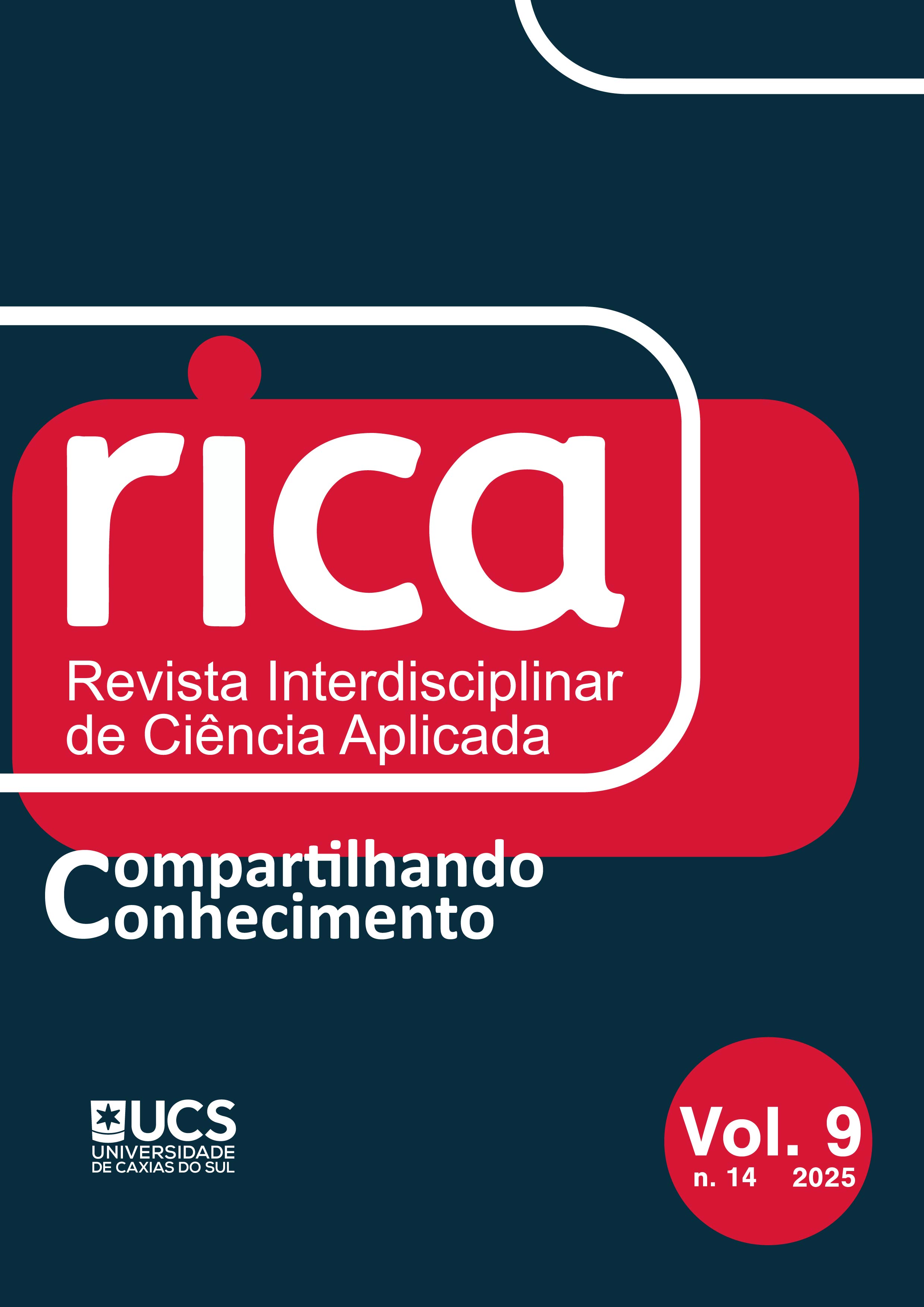Consciousness depths and psychological defence mechanisms
DOI:
https://doi.org/10.18226/25253824.v9.n14.04Keywords:
Displacement, Denial, Projection, Mental state, RationalisationAbstract
The study of the depth of consciousness and psychological defence mechanisms is particularly relevant nowadays, as it allows us to better understand how stressful conditions affect people, shape their behaviour, and affect their mental health. The study aims to examine in detail the peculiarities of human consciousness and its changes in the context of activation of psychological defence mechanisms. The method of analysis, systematisation and survey was used in the study. As a result of the scientific research, the concept of consciousness and its key components in the context of the human psyche were considered. As a result of the work, the peculiarities of brain activity, which is a central component of the mechanisms of consciousness, were studied and highlighted. In addition, the study revealed details of the evolutionary development of mental defence mechanisms. This study examines the impact of stressors on the activation and modification of mental defence mechanisms and analyses both constructive and destructive mental defence mechanisms. The research shows that psychological defence mechanisms are dynamic structures that can change depending on specific conditions and circumstances. The paper surveyed respondents on their understanding of the phenomenon of depth of consciousness and psychological defence mechanisms. The results of the survey indicate a high level of education and awareness of the respondents regarding the phenomenon of consciousness and mechanisms of mental protection. In the course of analysing the survey results, it was found that 98% of respondents expressed a positive attitude towards the need for in-depth education in the context of consciousness, indicating a high level of motivation for academic and psychological self-improvement. Within the same sample, 80% of participants reflected on psychological counselling as an effective mechanism for analysing and adapting psychological defence mechanisms.
References
Korkos, Y.O. (2022). Conceptual content of the category “consciousness” in foreign psychology. Scientific Bulletin of Kherson State University. Series “Psychological Sciences”, 1, 11-17.
Stepanenko, L.V. (2021). Peculiarities of the relationship between adaptive properties and psychological defence mechanisms in displaced persons. In: Collection of Scientific Materials of the II International Scientific and Practical Conference “Psychological and Pedagogical Coordinates of Personality Development” (pp. 206-210). Poltava: National University “Yuri Kondratyuk Poltava Polytechnic”.
Fomina, M. (2020). Defense mechanisms of students. Bulletin of Lviv University. Series “Psychological Sciences”, 6, 129-133.
Borets, Y.V. & Sivun, O.P. (2021). Mechanisms of psychological protection against negative emotional experiences. In: Proceedings of the VІI Correspondence Scientific and Practical Conference “Criminal Executive System of Ukraine and its Role in the Development of a Legal and Social State” (pp. 19-23). Chernihiv: Academy of the State Penitentiary Service.
Gorodetska, O.V. (2020). Information detox as a means of psychological protection of the individual. In: Collection of Materials of the III International Scientific and Practical Conference “Development of Professional Skills of a Teacher in the Conditions of a New Socio-Cultural Reality” (pp. 100-102). Ternopil: Taip.
Halich, A., Kutsevska, O., Korchagina, O., Kravchenko, O. & Fiedotova, N. (2023). The influence of social communications on the formation of public opinion of citizens during the war. Social and Legal Studios, 6 (3), 43-51.
Chalmers, D. (2018). The meta-problem of consciousness. Journal of Consciousness Studies, 25 (9-10), 6-61.
Winters, J.J. (2021). The temporally-integrated causality landscape: Reconciling neuroscientific theories with the phenomenology of consciousness. Frontiers in Human Neuroscience, 15, 768459.
Marchetti, G. (2022). The why of the phenomenal aspect of consciousness: Its main functions and the mechanisms underpinning it. Frontiers in Psychology, 13, 913309.
Freud, S. (1933). New introductory lectures on psychoanalysis. New York: W.W. Norton & Company.
Tsurkan, A.A. & Tretyakova, T.M. (2023). Features of psychological protection of persons with different temperaments. In: Abstracts of XXI International Scientific and Practical Conference the XXI International Scientific and Practical Conference “Informational, modern and Recent Theories of Development” (pp. 307-309). Madrid: European Conference.
Cramer, P. (2015). Understanding defense mechanisms. Psychodynamic Psychiatry, 43 (4), 523-552.
Fang, S., Chung, M.C. & Wang, Y. (2020). The impact of past trauma on psychological distress: The roles of defense mechanisms and alexithymia. Frontiers in Psychology, 11, 992.
Taurino, A., Antonucci, L.A., Taurisano, P. & Laera, D. (2021). Investigating defensive functioning and alexithymia in substance use disorder patients. BMC Psychiatry, 21 (1), 337.
Cramer, P. (2018). The development of defense mechanisms during the latency period. Journal of Nervous and Mental Disease, 206 (4), 286-289.
Vaillant, G.E. (2011). Involuntary coping mechanisms: A psychodynamic perspective. Dialogues in Clinical Neuroscience, 13 (3), 366-370.
Altwaijri, N., Abualait, T., Aljumaan, M., Albaradie, R., Arain, Z. & Bashir, S. (2022). Defense mechanism responses to COVID-19. PeerJ, 10, e12811.
Fingelkurts, A.A. & Fingelkurts, A.A. (2017). Information flow in the brain: Ordered sequences of metastable states. Information, 8 (1), 22.
Cooper, M.A., Clinard, C.T. & Morrison, K.E. (2015). Neurobiological mechanisms supporting experience-dependent resistance to social stress. Neuroscience, 291, 1-14.
Rice, T.R. & Hoffman, L. (2014). Defense mechanisms and implicit emotion regulation: A comparison of a psychodynamic construct with one from contemporary neuroscience. Journal of the American Psychoanalytic Association, 62 (4), 693-708.
Costa, R.M. & Brody, S. (2013). Immature psychological defense mechanisms are associated with greater personal importance of junk food, alcohol, and television. Psychiatry Research, 209 (3), 535-539.
Spytska, L. (2023). Emotional intelligence and its impact on human life in the global world. Scientific Studios on Social and Political Psychology, 52 (55), 47-56.
Downloads
Published
How to Cite
Issue
Section
License
Copyright (c) 2025 Liana Spytska

This work is licensed under a Creative Commons Attribution 4.0 International License.
Authors keep the copyright and cede to the journal the right of publishing first. Published works are licensed under a Creative Commons Attribution 4.0 International (CC BY 4.0) license, allowing the sharing of the work with recognition of the authorship and initial publication in this journal.






